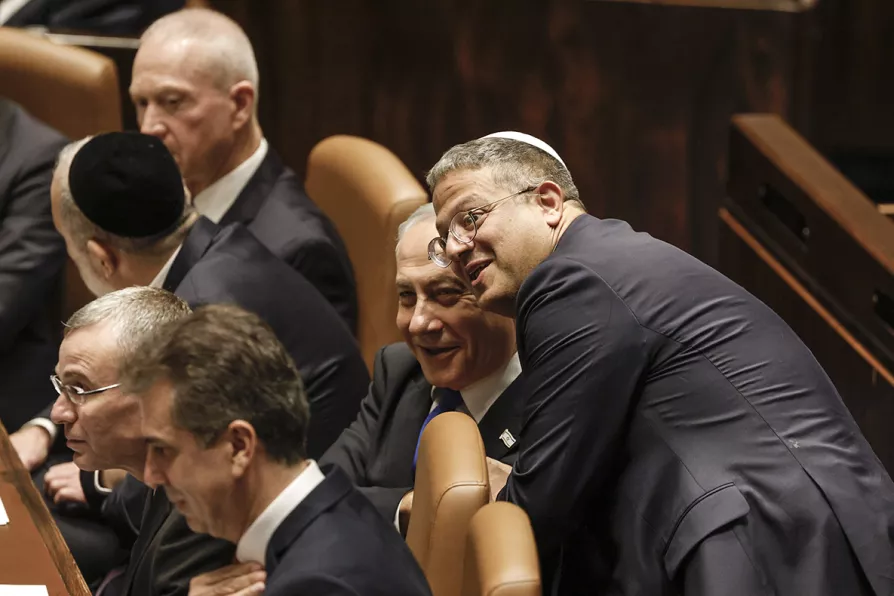MBDA’s Alabama factory makes components for Boeing’s GBU-39 bombs used to kill civilians in Gaza. Its profits flow through Stevenage to Paris — and it is one of the British government’s favourite firms, reveals SOLOMON HUGHES

 Israel's new Minister of National Security Itamar Ben-Gvir, (right) speaks with Israeli Prime Minister Benjamin Netanyahu, as Israel's new right-wing government is sworn in at the Knesset
Israel's new Minister of National Security Itamar Ben-Gvir, (right) speaks with Israeli Prime Minister Benjamin Netanyahu, as Israel's new right-wing government is sworn in at the Knesset
EVEN before the new Israeli government was officially sworn in on December 29 2022, angry reactions began emerging, not only among Palestinians and other Middle Eastern governments but also among Israel’s historic allies in the West.
As early as November 2, top US officials conveyed to the Axios news agency that the Joe Biden administration is “unlikely to engage with Jewish supremacist politician, Itamar Ben-Gvir.”
The US government’s apprehensions surpassed Ben-Gvir, who was convicted by Israel’s court in 2007 for supporting a terrorist organisation and inciting racism.

With foreign media banned from Gaza, Palestinians themselves have reversed most of zionism’s century-long propaganda gains in just two years — this is why Israel has killed 270 journalists since October 2023, explains RAMZY BAROUD

Gaza’s collective sumud has proven more powerful than one of the world’s best-equipped militaries, but the change in international attitudes isn’t happening fast enough to save a starving population from Western-backed genocide, argues RAMZY BAROUD

RAMZY BAROUD asks why it has taken so long for even left-wing voices in the West to call out what Israel is doing

RAMZY BAROUD explains why the world can no longer ignore Palestine














